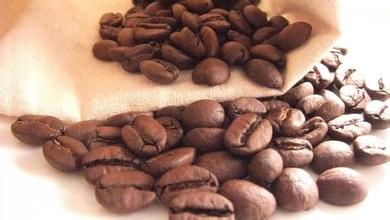Description of the characteristics and Flavor of Yunnan Solar Iron pickup Coffee beans introduction to the producing areas of varieties by taste treatment
Description of the characteristics and Flavor of Yunnan Solar Iron pickup Coffee beans introduction to the producing areas of varieties by taste treatment
Coffee is a short-day plant. Coffee has the characteristics of multiple flowering and concentrated florescence. The florescence of small seed coffee in Yunnan is from February to July, and the flowering period is from March to May. The flowering of coffee is greatly affected by climate, especially rainfall and temperature. Coffee flowers have a short life span of only 2-3 days. Small seed coffee usually opens at 3: 5 in the morning and blooms from 5 to 7 o'clock. Typica: the oldest native variety in Ethiopia and southeastern Sudan. All Arabikas are derived from Tibika. The flavor is elegant, but the physique is weak, the disease resistance is poor, the fruit yield is less. Excellent manor beans such as the Blue Mountains of Jamaica, Manning of Sumatra and Kona of Hawaii all belong to Tibika. The top leaf of Tibika is red and bronze, which is called red top coffee. Tibika belongs to Arabica.
Now this pure old variety of coffee has been growing for seven months, and by next year, these seedlings can be provided to villagers in three nearby villages for planting free of charge. At that time, for every mu of coffee trees that survive, the villagers will be subsidized to plant 500 yuan to promote the development of the ancient coffee industry and let the descendants of the ancient coffee trees reproduce from generation to generation. For this, Qi Fenghua to lead the villagers to increase income and become rich also full of confidence into the village of Zhu Kula, a unique aroma of coffee. It turns out that after a hundred years of edification, drinking coffee has long become a living habit of the local Yi villagers. Villager Qi Fenghua said that men and women, young and old, all like to drink coffee, grind themselves with iron pots and grind themselves. However, the coffee processing process is kept secret, no wife, no daughter.
After drinking the original, simple coffee, we approached what is known as the oldest coffee forest in China. At this time, the ancient coffee trees have produced clusters of coffee beans, although they will not mature until next month, but some of them will show bright red. Qi Fenghua said that this forest is considered to be the oldest ancient coffee forest in China. There are 1134 plants in 13 mu, 24 of which have a history of more than 100 years, which were introduced and planted by French missionaries when they built a church in Zhu Kula in 1892. Local Tan Jialin said: "the reason why the 13 mu ancient coffee forest in Zhukula area is listed as the oldest coffee forest in China is that it has 24 ancient coffee trees more than 100 years old, all of which are pure Yunnan small-grain coffee. Its superior quality is very rare. It is the ancestor of Chinese coffee, especially Yunnan small-grain coffee, and has extremely high scientific research value and industrial development value."

Important Notice :
前街咖啡 FrontStreet Coffee has moved to new addredd:
FrontStreet Coffee Address: 315,Donghua East Road,GuangZhou
Tel:020 38364473
- Prev

Colombian emerald coffee bean producing area characteristic flavor description taste treatment variety
Flavor description of Colombian emerald coffee producing areas after the varieties mature, Colombian coffee beans have a reputation as flawless and elegant as emerald in the jade world, with heavy grains, rich nutrition, rich flavor, soft taste, smooth taste and excellent balance; the color is as clear and transparent as emerald emerald; until
- Next

Grinding scale of coffee beans in Honor Manor in El Salvador Variety treatment of French-produced manors
Grinding scale varieties of coffee beans in Honor Manor in El Salvador Salvadoran coffee is ranked alongside Mexico and Guatemala as producers of Asa and Merdo, and is fighting for the top one or two in China and the United States with other countries. The highlands of origin are large coffee beans of all sizes, which are fragrant and mild in taste. Like Guatemala and Costa Rica, El Salvador
Related
- Detailed explanation of Jadeite planting Land in Panamanian Jadeite Manor introduction to the grading system of Jadeite competitive bidding, Red bid, Green bid and Rose Summer
- Story of Coffee planting in Brenka region of Costa Rica Stonehenge Manor anaerobic heavy honey treatment of flavor mouth
- What's on the barrel of Blue Mountain Coffee beans?
- Can American coffee also pull flowers? How to use hot American style to pull out a good-looking pattern?
- Can you make a cold extract with coffee beans? What is the right proportion for cold-extracted coffee formula?
- Indonesian PWN Gold Mandrine Coffee Origin Features Flavor How to Chong? Mandolin coffee is American.
- A brief introduction to the flavor characteristics of Brazilian yellow bourbon coffee beans
- What is the effect of different water quality on the flavor of cold-extracted coffee? What kind of water is best for brewing coffee?
- Why do you think of Rose Summer whenever you mention Panamanian coffee?
- Introduction to the characteristics of authentic blue mountain coffee bean producing areas? What is the CIB Coffee Authority in Jamaica?

